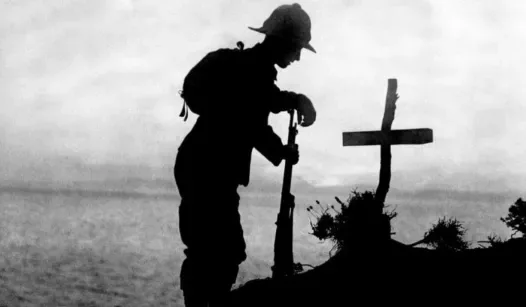The Gallipoli Campaign, which began in 1915 during World War I, remains a pivotal moment in military history, marking its 110th anniversary this year. Intended as a strategic maneuver to open a new front against the Central Powers, the campaign ultimately had unintended consequences that prolonged the conflict rather than hastening its end.
Initially, the Allies aimed to divert German resources by launching an offensive in the Dardanelles, believing that a successful campaign would lead to the capture of Constantinople (modern-day Istanbul) and knock the Ottoman Empire out of the war. The hope was that this would relieve pressure on the Eastern and Western Fronts, allowing for a more coordinated effort against Germany.
However, the reality of the Gallipoli Campaign proved to be far more complex. The operation was marred by poor planning, logistical failures, and fierce resistance from Ottoman forces. The Allies faced significant challenges, including difficult terrain, inadequate supplies, and a lack of clear objectives. As a result, the campaign turned into a protracted and bloody stalemate, with heavy casualties on both sides.
The Gallipoli Campaign ultimately exhausted the Allied forces, draining resources and morale. Instead of shortening the war, it extended the conflict, leading to further loss of life and resources. The lessons learned from Gallipoli have had lasting implications for military strategy and international relations, emphasizing the importance of thorough planning, understanding the terrain, and the need for clear objectives in military operations.
As we reflect on the events of Gallipoli 110 years later, it’s crucial to consider the broader implications of this campaign. The sacrifices made during this time serve as a reminder of the complexities of war and the need for careful consideration in military engagements. Understanding the past can help inform current and future political and military strategies, ensuring that history does not repeat itself in similar ways.
In today’s political landscape, the lessons of Gallipoli can still resonate. As nations navigate international relations and military strategies, the importance of comprehensive planning and understanding the dynamics of conflict remains paramount. The campaign serves as a cautionary tale of the consequences of miscalculation and the need for strategic foresight in the face of uncertainty.
As we commemorate the anniversary of Gallipoli, it is an opportunity to honor those who served and reflect on the enduring lessons of this significant historical event. The campaign’s legacy continues to shape military thought and political discourse, reminding us of the profound impact that decisions made in times of conflict can have on the course of history.
